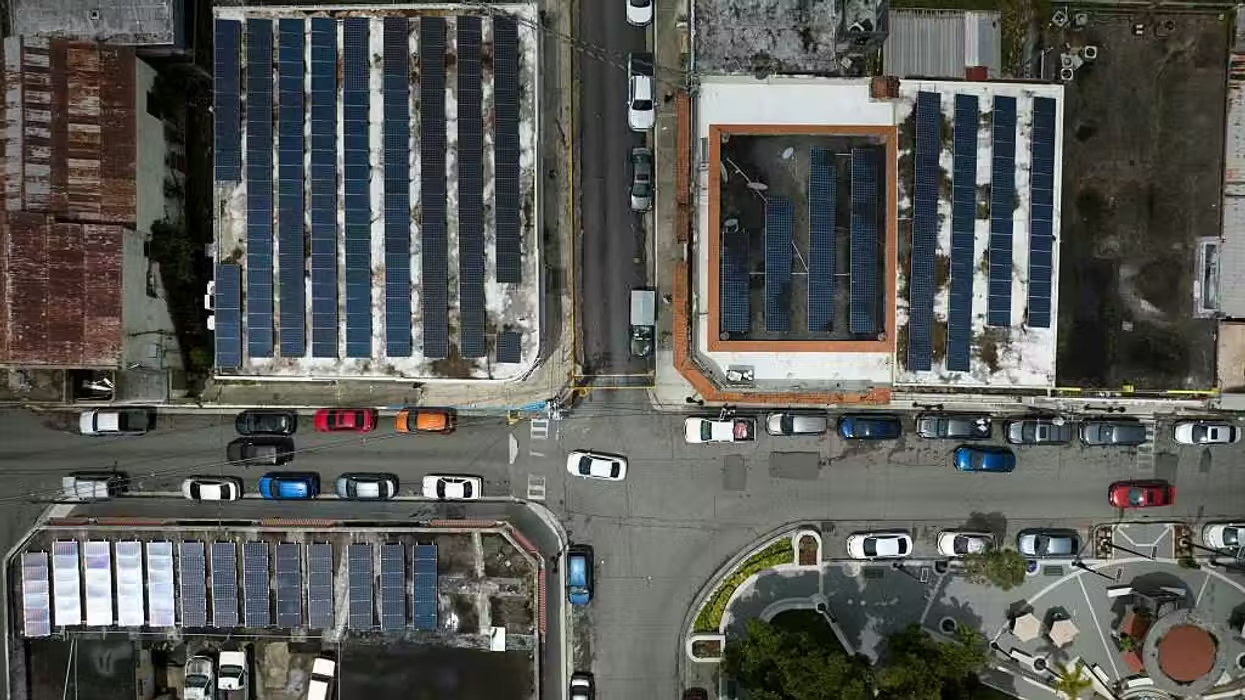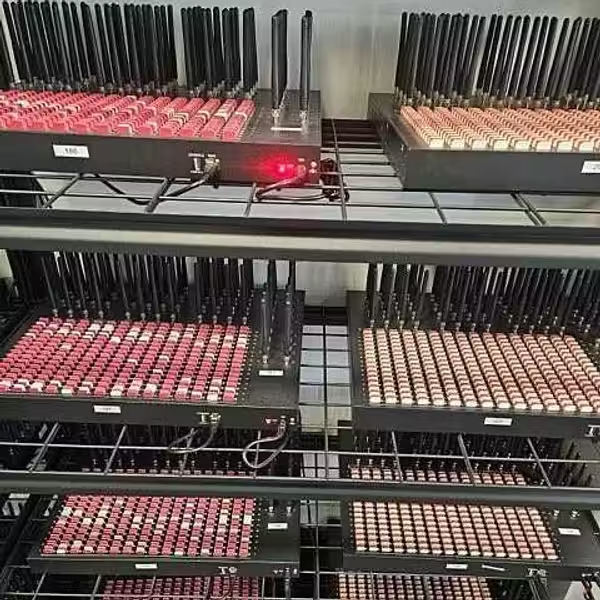
Photo by Ricardo Arduengo/Getty Images

China has laid the groundwork for a new war on America’s soil ... and soul.
Recent reports from "60 Minutes" have pulled back the digital curtain on a sobering truth. China is no longer just stealing data; it is mapping America’s weaknesses— its grids, its ground, its very geography. Retired General Tim Haugh, former head of both the NSA and U.S. Cyber Command, revealed that Chinese hackers have infiltrated American computer networks to an astonishing degree. They have targeted everything from utilities and pipelines to phone systems and local water plants. Even Littleton, Massachusetts, a town of barely 10,000, was hacked. The FBI found Beijing’s fingerprints deep inside its water and electric control systems.
It’s often said that wars are fought for territory. What’s new is that the territory no longer needs to be conquered; it can be connected.
If “they're willing to go after that small provider that doesn't have a national security connection,” Haugh said, “that means every target is on the list.” He’s right. In the cyber age, you don’t need to drop bombs to cripple a nation. You only need to flip the right digital switch.
Beijing could trigger chaos — blackouts, water contamination, grid failures — forcing Washington to fight panic while fighting a war.
The threat has moved beyond networks and into the soil itself. Chinese state-linked companies have quietly bought hundreds of thousands of acres of American farmland, often near military bases, data centers, and missile silos. It’s not agriculture but access.
Former national security official David Feith, who has served in both Trump administrations, warned that China’s land purchases could become launchpads for espionage or even sabotage. With today’s technology, a few shipping containers, drones, or concealed transmitters on “farmland” could paralyze a base or poison a water supply. “It’s an entirely new way of war,” Feith told "60 Minutes."
Consider the precedent. In Ukraine, drones smuggled across borders struck Russian bombers. What’s near can strike what’s vital. The same principle applies here, where the developing pattern is unmistakable. From hacking Littleton’s utilities to purchasing property beside Air Force bases in North Dakota and Wyoming, Beijing’s strategy is not a flurry but a campaign measured in decades.
China doesn't improvise; it incubates. Twenty-five-year plans are routine. Its slow, subterranean siege against American security marries patience with precision. Even crypto mines have become camouflage. So-called “data centers” owned by Chinese-backed firms are colossal power drains, often located near military facilities. Feith warns that they can be used to spy on communications or overload local grids.
Why does China do this? Not for trade or treasure, but for leverage in crisis. General Haugh calls it pre-positioning: If conflict erupts in the Indo-Pacific, Beijing could trigger chaos at home — blackouts, water contamination, grid failures — forcing Washington to fight panic while fighting a war.
There’s a dark brilliance to it. Attack the ordinary to paralyze the exceptional.
The battlefield is now your back yard. Across the United States, cyber leadership posts sit vacant and agencies remain demoralized. General Haugh himself was dismissed after Laura Loomer accused him of disloyalty for having served under Biden. It was political theater when what was needed was practical strength. You can loathe Biden and still love the republic; the two are not mutually exclusive. But partisanship has become a kind of paralysis, blinding so many to the broader threat.
RELATED: Chinese SIM farms are radicalizing Americans and destabilizing society, intel experts say

So what should the Trump administration do?
First, secure the land before it secures you. Close the loopholes that let adversaries buy acreage near sensitive sites. Twenty-nine states already restrict foreign land ownership; make it 50. Ownership of soil is sovereignty. Selling it to a strategic foe is suicide by acreage.
Second, treat cyber defense like civil defense. Rebuild the firewall of faith in government competence. Incentivize companies to modernize their systems and share intelligence. For too long, agencies have hoarded information like monks guarding manuscripts. They should be arming every county, every company, every citizen with the tools to repel an attack.
Third, punish corporate complicity. Any American firm fronting for Chinese capital should face criminal penalties. Beijing doesn’t buy farmland to grow corn. It buys it to grow control.
Fourth, revive deterrence through dominance. China respects strength and exploits hesitation. The administration must make it clear that interference with its utilities or infrastructure will meet a proportional — or greater—response. The Great Firewall cuts both ways.
Finally, restore competence at the top. Reinstating seasoned experts like Haugh or empowering a new cyber czar with wartime authority would signal that the era of political purges in defense agencies is over. A nation that cannot trust its guardians will soon be guarded by its enemies.
Still, the challenge isn’t only technical. It is one of will and vigilance. Americans have grown used to comfort, assuming safety is permanent. But as these reports show, peace without preparation is just permission to be plundered.
And yet there’s a faint humor in our hubris. We let Chinese-backed crypto farms bloom beside missile bases and then wonder why the lights flicker. We ban plastic straws to “save” the planet, but sell farmland to the very regime paving it over.
Faith teaches that temptation often comes disguised as opportunity. The same is true in geopolitics. The common assumption is that China invades. Wrong. It integrates. And by the time we notice, it’s already inside the gate, serving sweet-and-sour sovereignty with a side of spyware.
America must wake up. The next Pearl Harbor won’t come by sea or sky. It will come through dead screens, dry taps, darkened cities, and finally dead bodies.
The tools to prevent that silence exist. The question is whether we have the discipline to use them. Because the greatest danger isn’t what China can take. It’s what America might give away, one password, one acre, one act of indifference at a time.
John Mac Ghlionn
Contributor